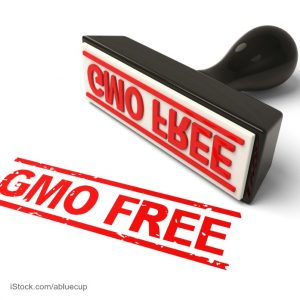According to Stacy Malkan, Media Director for the California Right to Know 2012 ballot initiative, the genetically modified organisms (GMO) labeling measure will be called Prop 37 on the November ballot. Ms. Malkan said, “Prop 37 is about our fundamental right to know what’s in the food we eat and feed our children. Given the broad support in the state – and across the country – for the right to know if our food is genetically engineered, we are confident California voters will make history by passing Prop 37 in November.”
 There is widespread support for labeling genetically engineered foods. Ninety percent of voters in the United States and California back labeling, according to recent polls. And only 25% of American consumers think GMOs are basically safe. The European Union has been labeling GMO foods since 1997, China required food labels on these foods in 2004, and India will require labels in January 2013. The initiative is backed by many consumer, health, business, science, and environmental groups, including Public Citizen, Sierra Club, American Public Health Association, Organic Consumers Association, Consumer Federation of America, Organic Valley, Center for Food Safety, and the California State Grange.
There is widespread support for labeling genetically engineered foods. Ninety percent of voters in the United States and California back labeling, according to recent polls. And only 25% of American consumers think GMOs are basically safe. The European Union has been labeling GMO foods since 1997, China required food labels on these foods in 2004, and India will require labels in January 2013. The initiative is backed by many consumer, health, business, science, and environmental groups, including Public Citizen, Sierra Club, American Public Health Association, Organic Consumers Association, Consumer Federation of America, Organic Valley, Center for Food Safety, and the California State Grange.
The American Medical Association recently called for testing of GMO foods instead of labeling. There are no long-term studies on the safety of genetically modified or engineered foods. The safety is based on the “substantial equivalence” standard, which means if a food is substantially equivalent to an existing food, it is regarded as safe. Ms. Malkan told Food Poisoning Bulletin that “independent studies show that genetically engineering food can create new, unintended toxicants and increase allergies and other health problems.”
Supporters of the proposal hope that if it passes, food manufacturers will label foods sold all around the country to avoid having to print two labels for the same product. But the Coalition Opposed to the Costly Food Labeling Proposition and California Citizens Against Lawsuit Abuse, two organizations that oppose the initiative, may spend $100 million trying to defeat it, according to Right to Know.





Why is industry fighting labeling? If GMO’s are great things, as industry is spending millinons to tell people, GMO’s should be identified on food labels so consumers will know where to find them so they can buy food that contains GMO’s.
Let’s hear it for identifying GMO’s. If GMO’s weren’t harmful, they wouldn’t be hidden.
Did you know that 80-90% of the food in grocery stores are made with GMO’s? It’s not that they’re hidden, its just a waste of time and money to label everything that contains them.. because almost everything does. They’re safe.
Safe? Not to people who have allergies to the unlabeled GMOs. Putting a Brazil nut gene into a soybean can provoke allergies. And without labels, those with allergies don’t know what they’re eating. In addition, some soybeans have genes from bacteria that have never been part of the human food supply until now.
There has been no safety testing done on GMO products. Gene mutations are another possible issue; inserting one gene into another could cause mutations in the organism.
I also don’t like the fact that more and more herbicides are used on GMO fields. By 2004, farmers used 86% more herbicides on GMO soy fields than non-GMO soy. Some GMO crops were classified as pesticides: the New Leaf potato produced the Bacillus thuringiensis toxin to kill pests. It has been taken off the market.
At the very minimum, people deserve to know what’s in the food they buy.